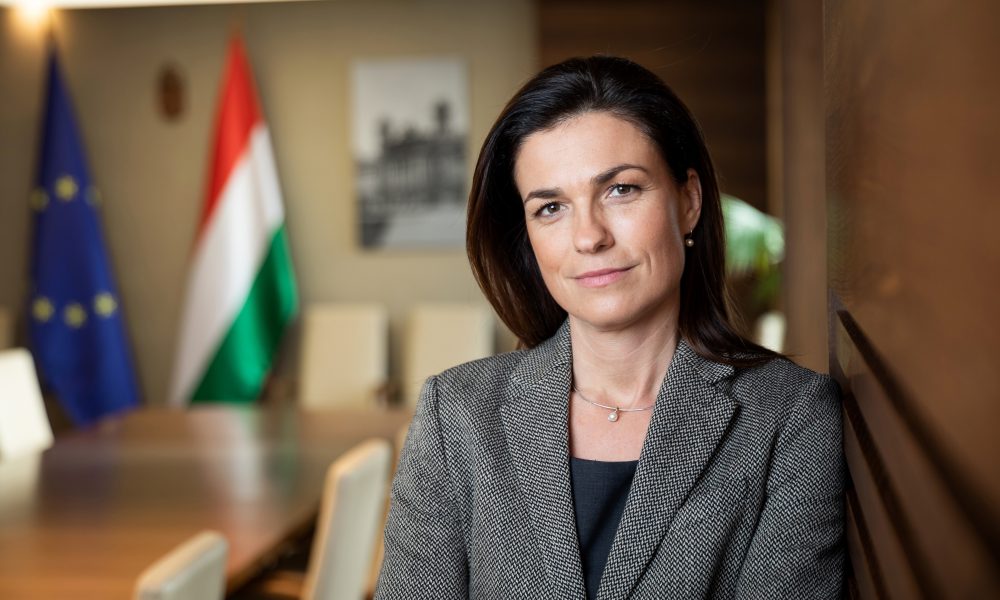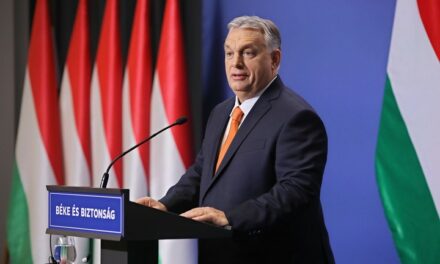The European Commission's new report on the rule of law, which will be released soon, must not be used for ideological purposes, it cannot be used to blackmail member states, their independence and EU treaties must be respected, Justice Minister Judit Varga stated in Brussels on Monday.
Speaking to Hungarian journalists, Judit Varga said that the EU committee's annual report on the rule of law, which is expected to be presented on Tuesday, said: the Brussels body's choice of topics is arbitrary, and among other things, it does not include the issue of national minorities among its topics this year, as well as the fight against anti-Semitism.
The methodology of the EU committee can also be questioned, just as it is also questionable which background institutions and NGOs the report is based on which are considered authentic. Hungary maintains its position that the European Commission did not have the authority to prepare such reports according to the EU treaties, he stated.
The Minister of Justice called it regrettable that political statements about the Hungarian Child Protection Act were published sooner than the opinion makers had read the various sections of the text. This has led to a lot of misinformation and its dissemination, he said.
In the case of the adoption of the Hungarian plan to draw down the EU fund to help restore the damage caused by the coronavirus epidemic, the European Commission is also using the rule of law tool for blackmail, he warned. He stated: the one-week deadline set for the Hungarian response in the European Commission's previous letter was impolite. By giving its response, Hungary fulfills the two-month deadline available to it based on the notice letter from the Brussels body, he added.
Speaking to MTI about the issue of Israeli spy software published in the press, Judit Varga said that in Hungary, as in all orderly constitutional and legal states, the activities of the secret service are separated from politics. As in all states of law, the purpose of secret information gathering in Hungary is to monitor activities against the constitutional order and activities suspected of foreign intelligence in accordance with the interests of national security. The professional management of the services belongs to the Ministry of the Interior and partly to the Ministry of Foreign Affairs and Trade. The work of the Ministry of Justice in this matter means ensuring compliance with the legislation. Pursuant to the constitutional order of secret service actions in Hungary, these activities are controlled by the parliamentary committee appointed for this purpose.
"If you look around at what is happening in the world, for example, information is being collected about the German chancellor, it is clear that every serious country must have national security protection," he said.
Regarding the outcome of the meeting held on Monday in Brussels regarding the status of the series of conferences on the future of Europe, he said that it is important for Hungary to be able to participate in the deliberations as an observer, as he can share his experience of almost two decades of EU membership on how, in his opinion, the European Union should be run.
Hungary wants the conference series to be an event "fed by real popular sovereignty", in which the opinions of democratic, natural communities are presented to the decision-making bodies.
He said that Hungary is preparing for the debates with a seven-point action plan, which includes action against the expansion of powers and the construction of the so-called super-state, as well as that European integration should be a tool and not an end in itself, as well as that decisions be made by elected leaders and "not organized who" them to various NGOs. He emphasized that it is necessary to prepare for a period of dangerous challenges in Europe, as, among other things, migration and the pandemic threaten, and the countries waiting to join the EU must also be channeled into the conference, he said.
The economic success of individual countries makes the European community successful, there is no strong Europe without strong nations, added Judit Varga.
MTI
Photo: MTI/Balázs Mohai













